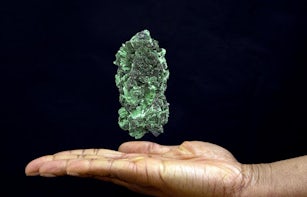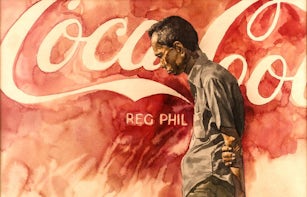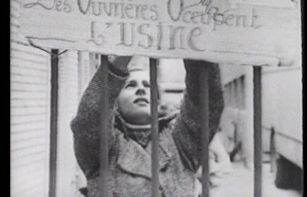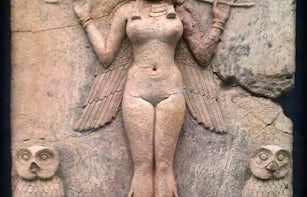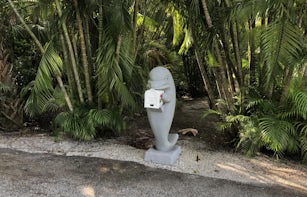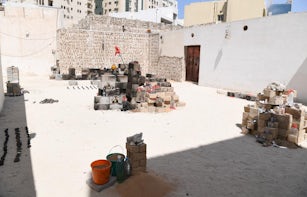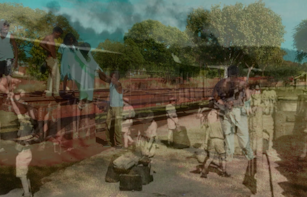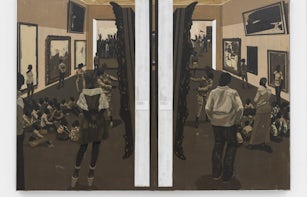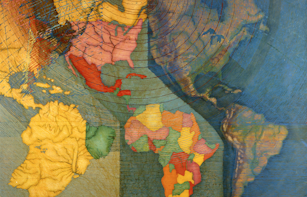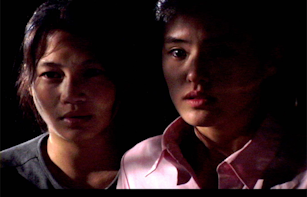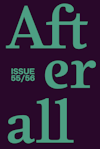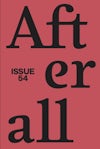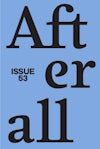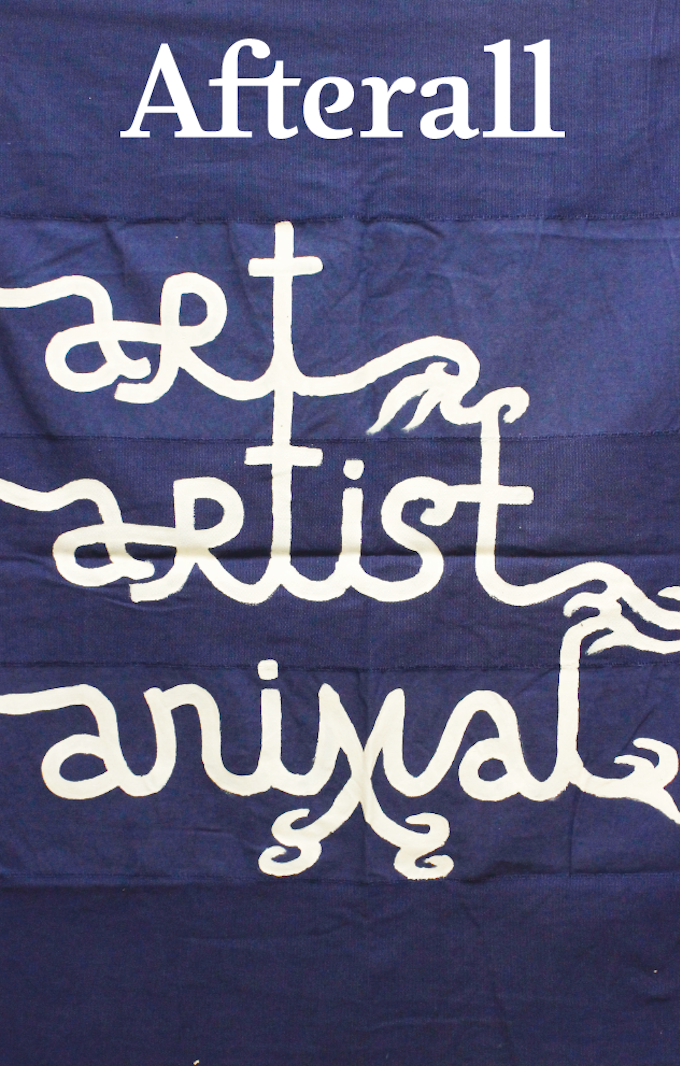
Issue 48
Autumn/Winter 2019
Afterall is pleased to present our anniversary issue 48, Autumn/Winter 2019 – ‘Looking Back, Looking Forward: 20 Years of Afterall’ – which reflects on changes and fractures in the art world over the last two decades of Afterall journal.
Editors: Ana Bilbao, Charles Esche, Anders Kreuger, Ute Meta Bauer, David Morris.
Founding editors: Charles Esche, Mark Lewis.
Table of contents
Contextual Essays
- Blue, Bling: On Extractivism – Heather Davis
- How Do We Know What Latin American Conceptualism Looks Like? – Miguel A. Lopez
- Social Realism: The Turns of a Term in the Philippines – Patrick D. Flores
- Decolonial AestheSis and the Post-Soviet Art – Madina Tlostanova
- Disobedient Video in France in the 1970s: Video Production by Women’s Collectives – Stéphanie Jeanjean
- Let This Darkness Be a Bell Tower – Tony Chakar
- Afterword: Florida Arabesque – Mark Lewis
Artists
Dineo Seshee Bopape
Karrabing Film Collective
Kerry James Marshall
Juan Downey
Trinh T. Minh-ha
Babi Badalov
- Babi Badalov’s Demodernisation – Anders Kreuger
Inji Efflatoun
- Public/Private: The Many Lives of ‘Rebel Painter’ Inji Efflatoun – Kaelen Wilson-Goldie
Events, Works, Exhibitions
- The Sleeping Ancestors – Peter D. Sipeli
Foreword
Written by Charles Esche
Twenty years is a useful length of time. It is long enough to obtain some distance and the possibility of an overview, but short enough to remain part of living memory. Twenty years of Afterall is also twenty years of living and working in the ‘art world’ and watching it morph and fracture. It is that process of change that I would like to reflect on in this foreword, as a way to chart where Afterall journal came from and where it is going now.
The origins of Afterall lay in a dissatisfaction, shared with my co-founder Mark Lewis, in the way art was being written about late last century. We wanted our new journal to be something that would analyse the social and political ambitions of some contemporary artists, what we called their context and fields of inquiry, while celebrating and arguing for the possibilities of visuality and artistic expression as something unique and valuable in itself. Ethics and aesthetics, or politics and poetics to take the rubric of documenta X in 1997, were what we wanted to bring into relation via the combination of an artistic and a curatorial approach that Mark and I each represented. The journal started in London, a city where the art market was expanding rapidly and where the media phenomenon of the YBAs (young British artists) was still felt, both in terms of making art more widely accessible and also less critically or socially engaged, or so we felt at the time. Mark had come to London from Vancouver, whilst I was based in Edinburgh and later Malmö, so both of us looked at the media hype around the mainstream London scene with some suspicion. At the same time, being based in an art school – Central Saint Martins, a constituent college of the University of the Arts London – we wanted to uphold the values of academic discourse around art and the notion of criticality as the most useful tool to analyse art, its production and its reception.
What we could term neoliberalism or the managed decline of the public interest was happening all around us in the early 2000s. The year of our launch coincided with the publication of Luc Boltanski and Eve Chiapello’s The New Spirit of Capitalism, where the instrumentalisation of creativity, innovation and the artistic lifestyle for the benefit of the wider capitalist economy was definitively exposed. Our approach in those early days was certainly influenced by such analyses but was more specifically built on the experience and observable impact of artworks and exhibitions. We tried to avoid a generic leftist critique, and that is why we focussed on artists as meaningful actors within the art system, as well as the contexts surrounding them and their work. Our editorial discussions always included an awareness of the effect of neoliberal policies on the staff, students and curricula at Central Saint Martins. We could see what was happening around us, in the college and far beyond, and we wanted to see how art would respond. Admittedly, we had little to offer as a constructive alternative and the promises of neoliberalism seemed to offer new openings towards experimentation and individual success within the arts – even the promise of a new kind of unregulated avant-garde. At the same time, neoliberal logic demanded that artists and curators increase their output, internationalise themselves and brand their activities. Afterall, at its origins, tried to navigate this terrain.
Purchase
The publication is available for purchase. If you would like specific articles only, it is also available individually and to be downloaded as PDFs.
Purchase full publication
Buy via University of Chicago Press
Buy via Central Books
Purchase individual articles
Buy via University of Chicago Press
